Stroll Through a Magnificent Japanese Garden, Newly Renovated
http://decor-ideas.org 11/24/2013 02:30 Decor Ideas
I have always had a little thing for Japanese gardens. Mention bonsai and native varietals of bamboo and throw in a koi pond or two, and I’m all ears. So when I heard that the Huntington Library, Art Collections, and Botanical Gardens had just published a book to celebrate the 100th year of its iconic Japanese Garden, I couldn’t wait to get my hands on it.
For the 192-page glossy hardcover book One Hundred Years in the Huntington’s Japanese Garden: Harmony With Nature, T. June Li, curator of the Huntington’s Chinese Garden, assembled a group of experts to write sections to reveal the garden’s history and restoration, and to predict its place in the future.
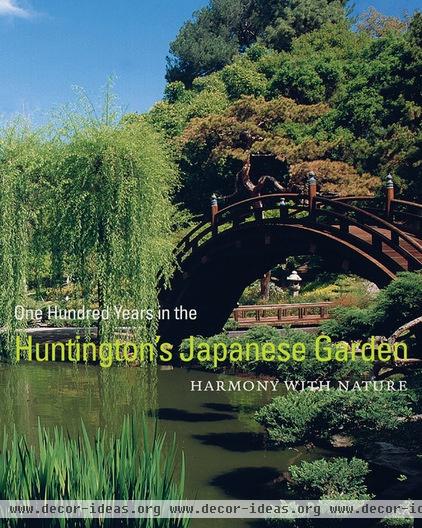
I have been to the garden many times, and it never disappoints.
Tucked on expansive 207-acre grounds in San Marino, California, it's a 9-acre jewel that celebrates Japan and its culture. "The Japanese Garden is arguably the most popular spot at the Huntington and has drawn more than 20 million visitors since the institution opened to the public in 1928," says James Folsom, the Telleen/Jorgensen director of the Botanical Gardens. "It is a garden that functions on multiple levels, a magical place that is intimate and inspiring. At the same time, it teaches us about Japan's unique landscape traditions, craftsmanship, horticulture and rituals."
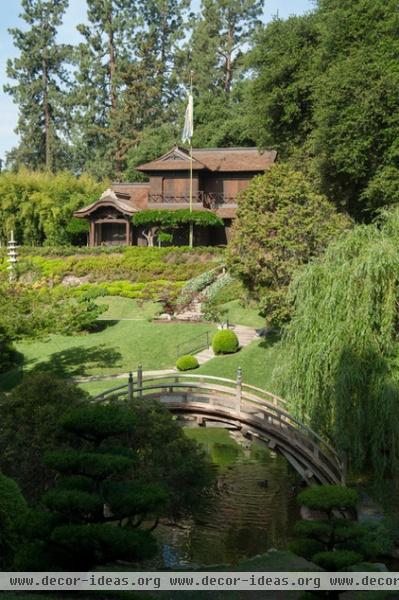
The sheer popularity of the garden is reason enough for a book, although a 100th birthday and an epic restoration work too. Each page of the glossy coffee table book highlights various aspects of the gardens: the distinctive moon bridge, wisteria arbors, koi-filled ponds, bonsai courts, raked-gravel garden, bamboo forest, historic Japanese House and recently added ceremonial teahouse.
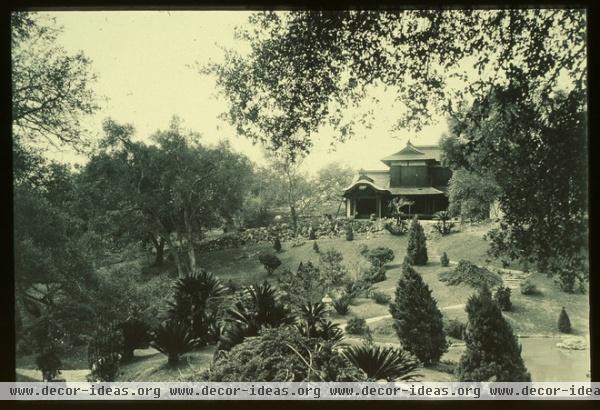
The garden reopened in April 2012 after a yearlong $6.8 million restoration. This photo shows the garden in 1913. It’s amazing to me how similar it looks today. The restoration included the Japanese House, pond, water infrastructure and bridges, and the addition of a waterfall, ceremonial tea garden and teahouse.
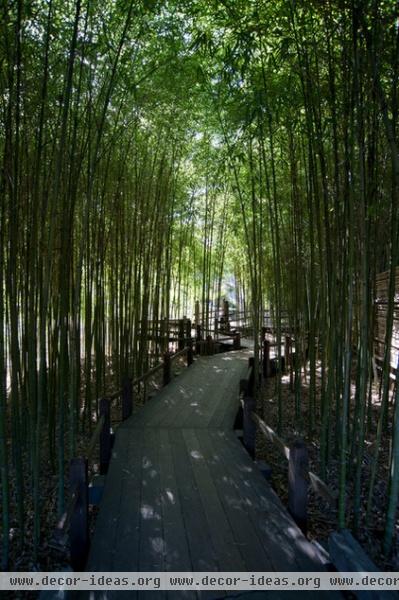
Leafing through the book feels almost like taking a stroll through the garden, or the bamboo forest, with its winding, romantic path ...
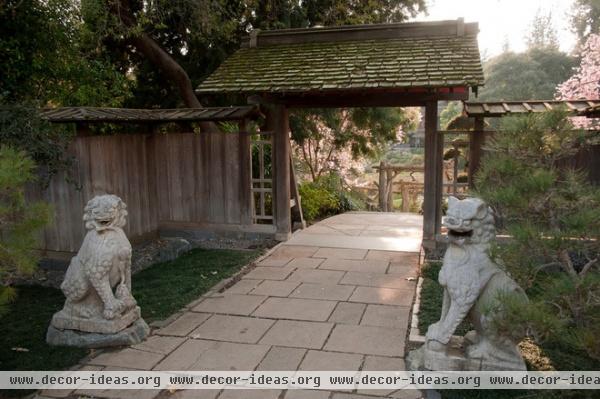
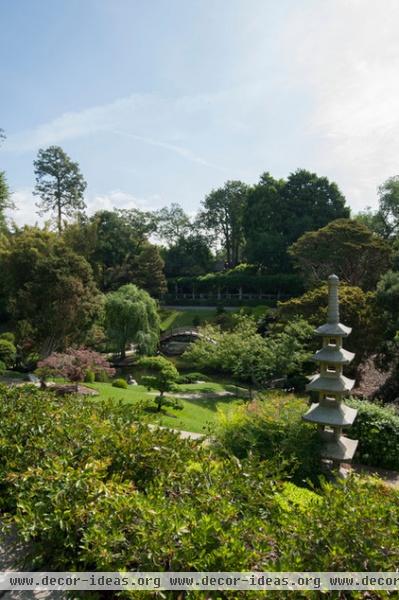
... passing through the lion gate entry, looking across the Japanese Garden ...
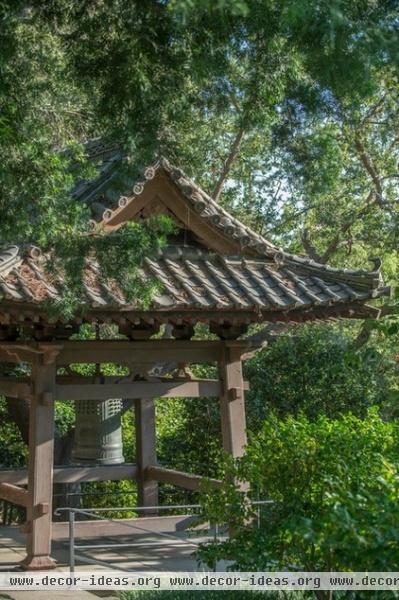
... sitting in the bell tower ...
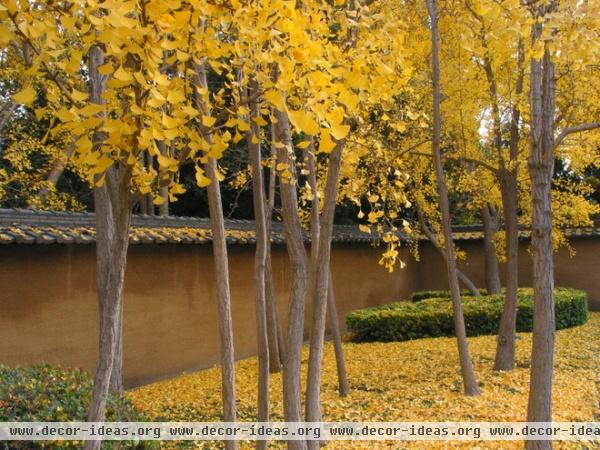
... or relaxing in the Zen Court in fall. All the images make you feel like you are just moments away from having a ceremonial tea in the teahouse.
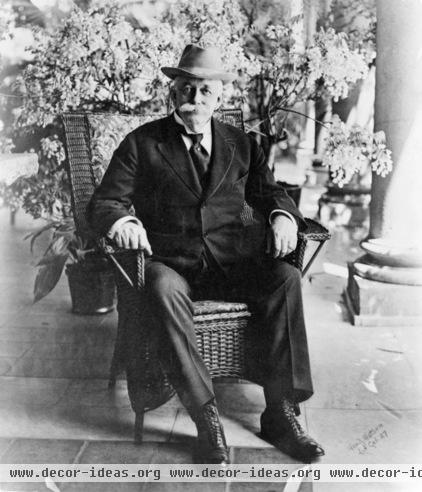
The historical photographs alone are worth paging through. They give a real sense of what life just after the turn of the century was like in this area.
When the Japanese Garden was created in 1913, Henry E. Huntington (shown) purchased it from George T. Marsh of Pasadena, who had the Japanese House shipped from Japan and constructed to showcase his collection of Oriental art for sale.
Marsh had already built several commercial tea gardens and created a Japanese garden for the 1894 World's Fair in San Francisco. The entire garden, including plants native to Japan, winding paths, bridges and lanterns, was moved along with the five-room house.
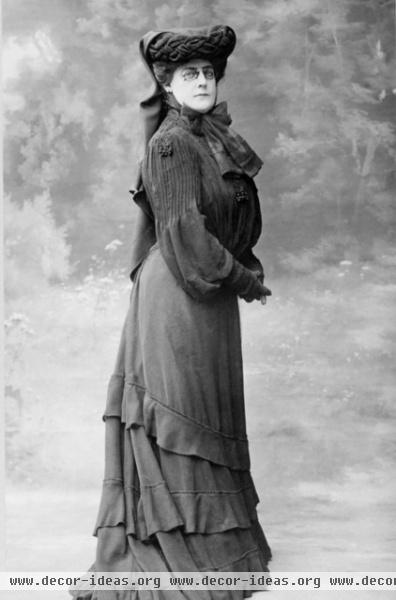
According to oral tradition, Huntington's socialite wife, Arabella D. Huntington (shown), was known to invite guests to come to the garden during the three months a year the couple spent on the vast property.
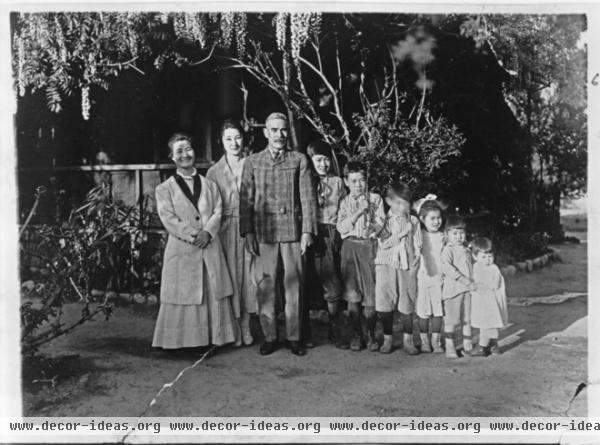
When the Huntingtons had the Japanese House moved to their estate, Toichiro Kawai (center) disassembled and reassembled the house. He is pictured here with his wife, Hama, their eldest daughter, Kimi (second from left), and the rest of their children, circa 1918.
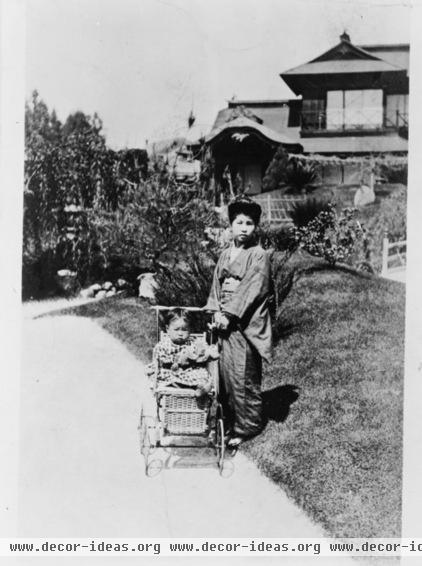
The Goto family was hired to maintain the gardens and the house; they lived in a small home behind the Japanese House. Tsune Goto and her son Kame are shown here in the Japanese Garden, circa 1908.
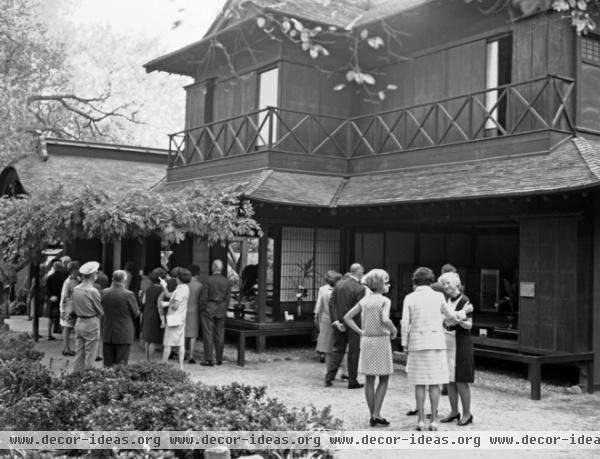
Much of the property later fell into disrepair until the late '50s, when a local women's group raised funds to have it refurbished. It had a resurgence of popularity in the '60s, and events were held in the Japanese Garden.
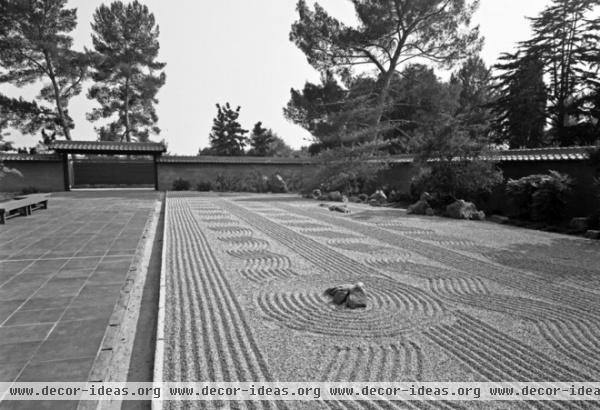
The Zen Court, part of the Japanese Garden, was added in 1968. The raked-gravel dry garden was created to evoke a flowing stream.
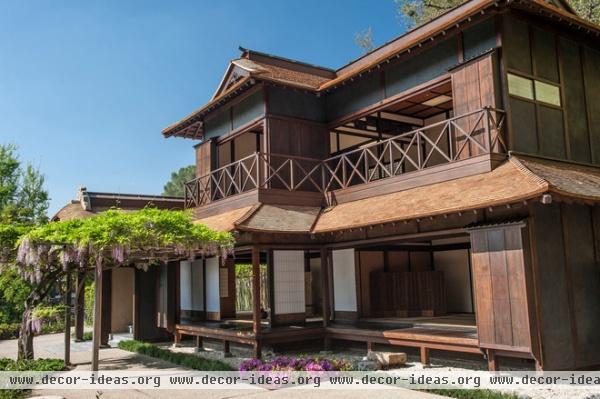
Painstaking restoration work has brought the Japanese House back to life.
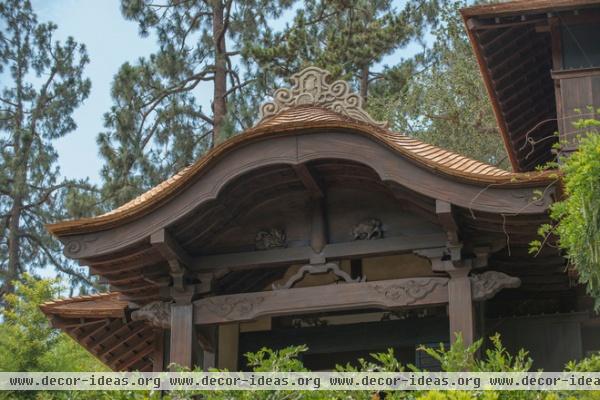
The carved woodwork on the front entry was repaired.

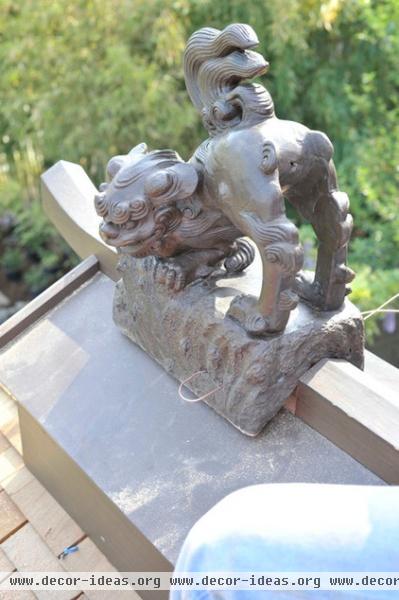
As were the roof and finials.
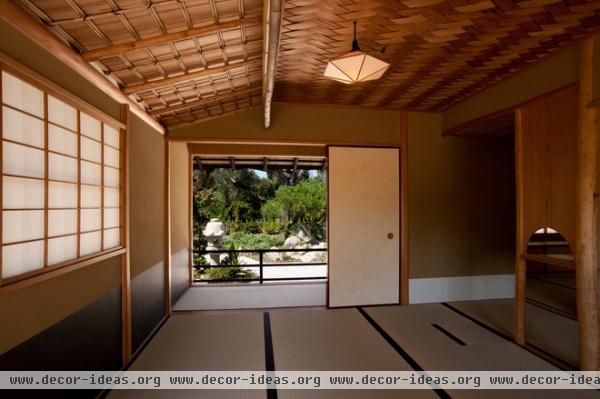
The Seifu-an (Arbor of the Pure Breeze) teahouse is available to visit, thanks to the Pasadena Buddhist Temple, who generously gave it to the Huntington recently.
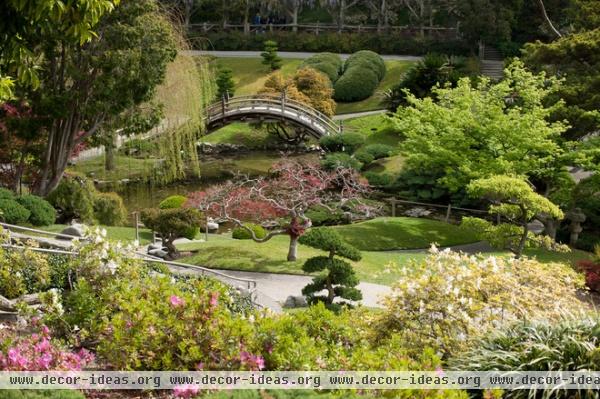
I have already planned my next visit to the Huntington's Japanese Garden, but if you're not close enough, this beautiful book will give you a taste, and maybe even inspire a visit.
Buy the book: One Hundred Years in the Huntington's Japanese Garden: Harmony With Nature
Garden info: The Huntington Library, Art Collections, and Botanical Gardens, 1151 Oxford Rd., San Marino, California; (626) 405-2100. Hours: 12 to 4:30 p.m. on Mondays, Wednesdays, Thursdays and Fridays; 10:30 a.m. to 4:30 p.m. on Saturdays and Sundays. Closed Tuesdays. More info
Related Articles Recommended












